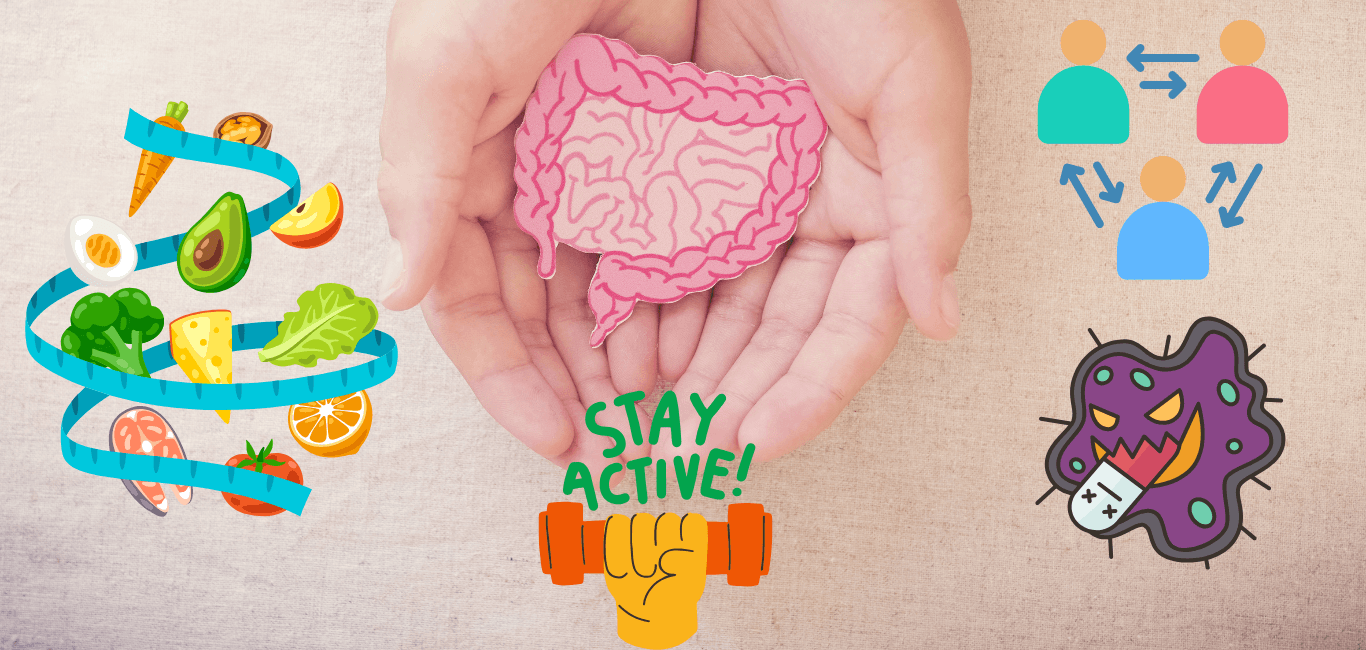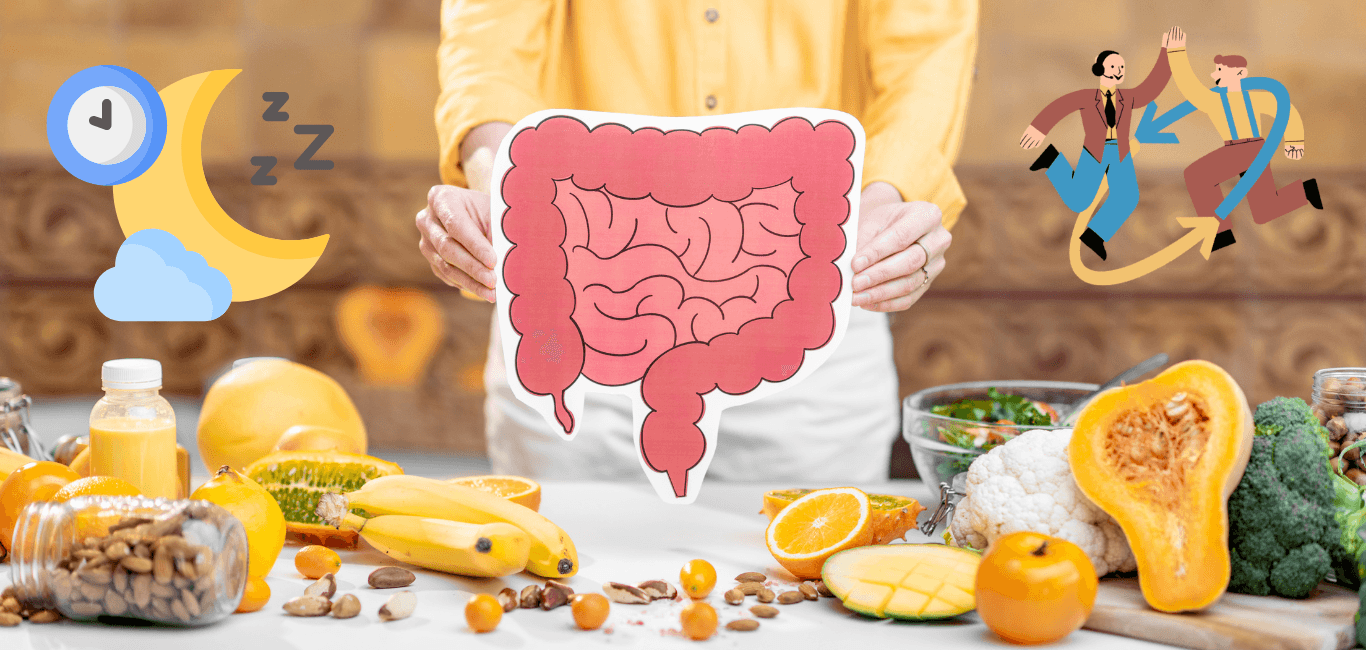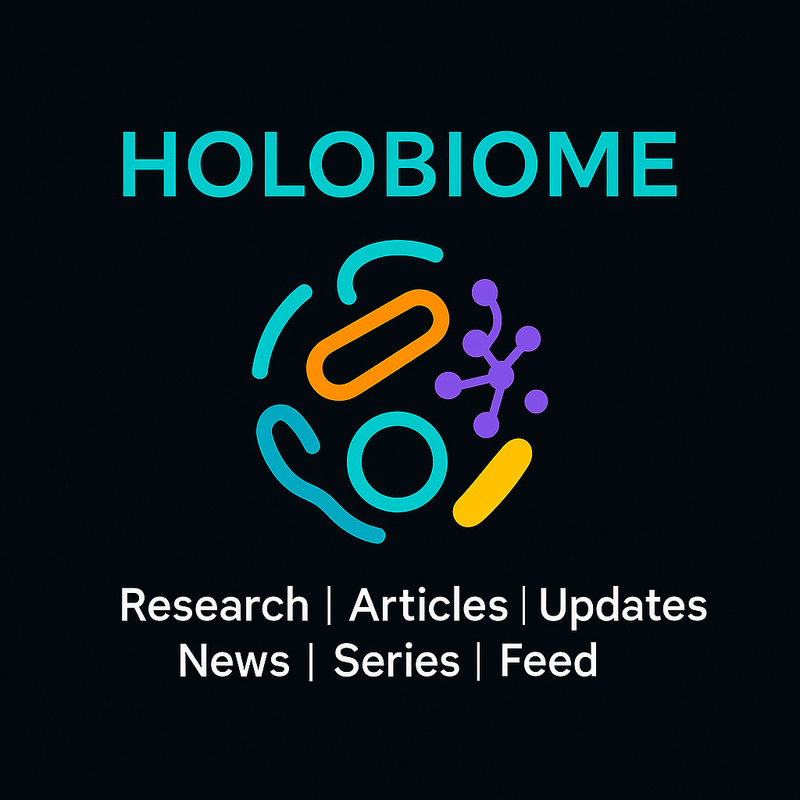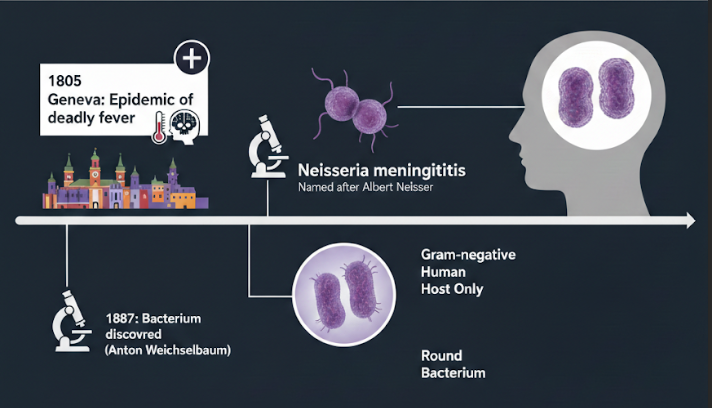Easy and simple ways to improve gut health

The colonization of the gut with the early microbiota begins almost immediately after birth. The microbial diversity undergoes shifts based on feeding patterns, starting from Bifidobacteria-dominated to increasing complexity until the age of three. Following this, various external and internal factors play a prominent role in shaping our gut microbiome and its rich diversity.
Any impairment in the interactions between our internal microbial ecosystems with external factors tends to be associated with dysbiosis- where the gut microbiome composition and diversity is altered with decreased count of beneficial bacteria. It is a complex phenomenon in which stress levels, dietary patterns and lifestyle changes cause various microbial, physiological, and anatomical changes in the GI tract. In the long run, the cumulative outcome of these impaired interactions can influence the overall mental and physical wellbeing of an individual.
Researchers across the globe are increasingly focused on trying to understand the various crosstalk that occur between the gut microbiome and different parts of the body, and the associated metabolic pathways involved. Unlocking these mechanisms, and identifying microbial signatures involved in various disorders would revolutionize the way we understand gut health and overall wellness.
So far, we understand that by following certain principles, it is possible to restore our gut imbalances and promote healthy living. Let us discuss a few simple measures that can help us in maintaining gut health.
A balanced diet for gut health
There is an old saying- “We are what we eat”. This is especially true in the context of the microbiome. The diet we follow and the types of foods we consume play a major role in shaping our gut microbiome. The results of many clinical and observational studies shed light on the importance of dietary patterns and nutrition for a healthy living. Through interactions between the human body and the microbiome, the food we eat gets digested, but is also partially converted into various essential metabolites that drive the synthesis of different hormones, neurotransmitters and several other important biomolecules.
Balanced host-microbe interactions help in better body-brain crosstalk and promote efficient organ function. Gut microbes produce beneficial molecules that modulate the immune system upon consuming protein-rich foods. Likewise, consuming foods rich in omega-3 fatty acids promotes the growth of anti-inflammatory gut bacteria that support the cardiovascular and metabolic health of individuals. Conversely, consuming simple sugars often leads to growth of pathogenic gut bacteria. Instead, complex carbohydrates are often converted into short chain fatty acids (SCFAs), which are essential molecules that perform several functions, one of which being the maintenance of gut membrane integrity. This could prevent conditions like ‘leaky gut’ and reduce tissue inflammation. Similarly, consuming fruits and vegetables that are high in fibres and polyphenols promotes the growth of healthy gut bacteria and reduces systemic inflammations.
Consuming fermented food also helps in improving intestinal health. Foods like yoghurt, kimchi and pickled vegetables are well known examples of fermented foods that are rich in healthy gut bacteria like Lactobacillus and Bifidobacterium. Progressively incorporating them in our diet on a regular basis helps support gut health through modulating the microbial composition.
Reduce intake of unnecessary medications and antibiotics for gut health
Besides food, medications are also regularly ingested into the body, and these too are capable of influencing the microbiome. Drug-microbiota interactions often influence both the therapeutic effect of the drug and gut microbial diversity. Loss of intestinal membrane integrity, increased stomach acidity, decreased count of healthy gut bacteria and development of resistant bacterial strains are the few side effects associated with excessive intake of antibiotics, now a very commonly used class of drugs. One needs to be careful while consuming antibiotics and follow certain safety precautions like avoiding overmedication, self-prescription, or skipping doses. Consuming probiotics when on an antibiotic treatment to restore the gut imbalances and prevent loss of healthy gut bacteria could reduce antibiotic associated side effects.
Constipation and the resulting excessive use of laxatives is a common scenario, but is one that can impair gut health. Studies reveal that excessive usage of laxatives leads to impaired functioning of beneficial gut bacteria. Consuming foods rich in fibres could be a possible natural alternative to alleviate digestive issues like constipation. For chronic conditions, it may be better to see a specialist or a physician for treatment options, rather than self-medicating on a symptomatic basis.
Social interactions and gut health
Other than the things we consume, studies show that social interactions and mental health also have connections with the gut. An imbalanced gut microbiome alters the gut-brain axis communication resulting in reduced secretion of neurotransmitters, and impaired behavioral and cognitive development among individuals. Additionally it could trigger or worsen conditions like anxiety, mood swings and depression. However, studies show that healthy social interactions with family and friends could enhance gut health by alleviating the stress factors and improving gut-brain axis communication.
Physical activity and gut health
Regular physical activity is known to alleviate the symptoms of various chronic disorders like obesity, diabetes and other metabolic disorders. In recent years researchers have been trying to understand if increased physical activity could enhance gut health and promote overall well being. The relationship between nutrition, the microbiota, and physical activity is a popular area of interest. It is now known that physical activity increases microbial diversity and the abundances of beneficial taxa like Lachnospiraceae and Ruminococcaceae. Specific microbes like Veillonella, metabolize lactic acid, and could enhance recovery and performance. Further research in this direction could open up new avenues for the development and usage of probiotics and prebiotics as supplements to support better physical health outcomes through exercise.
Sleep cycle regulation and gut health
One of the major physiological functions that impacts the function of various bodily systems and their roles is sleep, which is also now recognized to be vital for gut health. Irregular sleep patterns can impair a number of body processes. Mice model studies shed light on the understated threat of disturbed sleep-induced gut dysbiosis. It was observed that disturbed sleep patterns resulted in altered gut microbiota profiles that lead to weight gain and obesity. Adopting a healthy lifestyle, which allows for sufficient sleep, and altering our eating habits by including foods high in probiotics that support gut health, can help improve an individual's general wellbeing.

Conclusion
Dynamic interactions occur between our gut microbes and different parts of the body. Research has shown that these gut microbes play a crucial role in various pathological conditions including inflammatory disorders, compromised immune systems, poor digestion, chronic disorders like diabetes and obesity. Gut microbes have even been linked to cancer progression, therapeutic responses, and treatment outcomes. Knowing how significant this link is, simple lifestyle choices that include balanced diet plans, regular exercise and a healthy sleep cycle could help address the early warning signs of an imbalanced gut microbiome, restore stability, and promote overall wellbeing.
As our understanding of the gut microbial ecosystem enhances, it is evident that probiotics work in coordination with various human physiological processes that regulate the overall wellbeing, and could play a major role in handling dysbiosis. Prebiotics, probiotics and polyphenols (anti-oxidant molecules found in several foods like coloured fruit and leafy vegetables) are known as the ‘three P’s’ that play a critical role in promoting gut health. Multiple animal studies reveal the benefits of including these 3 P’s in our daily diet. Human clinical studies also exist for a variety of probiotic and food interventions, but larger and more diverse cohorts are needed to support these results, and help provide information to promote the overall wellbeing of individuals through the gut microbiome.
References
- Aleksandrova, K., Koelman, L., & Rodrigues, C. E. (2021). Dietary patterns and biomarkers of oxidative stress and inflammation: A systematic review of observational and intervention studies. Redox biology, 42, 101869. https://doi.org/10.1016/j.redox.2021.101869
- Tamayo, M., Olivares, M., Ruas-Madiedo, P., Margolles, A., Espín, J. C., Medina, I., Moreno-Arribas, M. V., Canals, S., Mirasso, C. R., Ortín, S., Beltrán-Sanchez, H., Palloni, A., Tomás-Barberán, F. A., & Sanz, Y. (2024). How Diet and Lifestyle Can Fine-Tune Gut Microbiomes for Healthy Aging. Annual review of food science and technology, 15(1), 283–305. https://doi.org/10.1146/annurev-food-072023-034458
- Dill-McFarland, K. A., Tang, Z. Z., Kemis, J. H., Kerby, R. L., Chen, G., Palloni, A., Sorenson, T., Rey, F. E., & Herd, P. (2019). Close social relationships correlate with human gut microbiota composition. Scientific reports, 9(1), 703. https://doi.org/10.1038/s41598-018-37298-9


